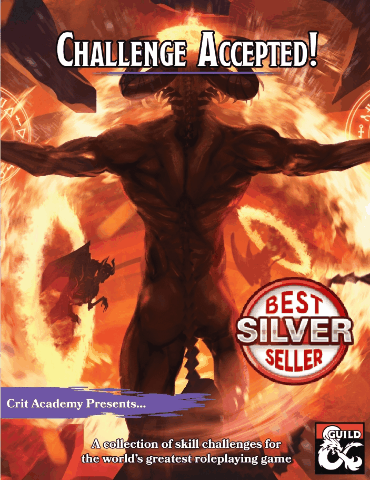Class Analysis: Cleric and Paladin
- Justin Handlin

- Jan 4, 2020
- 6 min read

Crit Academy breaks down the Cleric and Paladin features in the Dungeon and Dragons Player Handbook. We touch on the mechanics and how they function, as well how we would reflavor them to give them a fresh and unique feel.
Often times the Cleric is only ever seen as a healer, but with D&D5e's domain archetypes, they can not only fill that role, but many others. Being a War Domain Cleric who battles on the front lines, or Nature Domain Cleric whose cure wounds takes on the form of small collection of beautiful glowing butterflies, regardless of the domain chosen, the Cleric can approach the deadly adventuring world in a multitude of ways.
The Paladin, the holy knight, defender of all that is good. The Paladin's unique smite feature puts them on the top of the damage per round(DPR) charts. Converting spell slots into smite fuel, as it's often referred. The smite is such a fun roleplay mechanic, as a player can really flavor it anyway you want. A few examples, a holy beam of light from the heavens, a golden flame that surrounds the Paladin's weapon or a blast like energy beam from the end of their shield. You can choose.
Recommendation:
Unearthed Tips and Tricks: New and reusable D&D content for you to bring with you on your next adventure.
Character Concept:
Personal Space
Have you ever known a person who simply had no concept of personal space? They get way too close when talking to you, they reach in front of your face to grab things, they take some of your food without asking, and so on?
This is that person. There isn’t much to this character concept mechanically, but it leaves the doors wide open for roleplay. Maybe your character is a grappler and grapples other characters without even realizing it. Maybe they like to use the Shove action to move
other people out of the way. They could have a high Intimidate skill because nobody wants
to be around them, or they could have high Persuasion because they’re good at getting
people to do what they want through their…force of personality.
Monster Variant
For our Monster Variants, we choose a normal statblock from the Monster Manual and alter its abilities and features to add some variation to your fights.
Boneshard Skeleton
Origin: Skeleton
New Feature:
Death Burst. When the skeleton dies, it explodes in a burst of bone shrapnel. Each creature within 10 feet of it must make a DC 11 Dexterity saving throw, taking 7 (2d6) piercing damage on a failed save, or half as much damage on a successful one.
Encounter Concept
Wade in the Water
Rather than a fully fleshed-out encounter,nthis idea is more of an environment for you to
use. Simply put, set an encounter in an area of waist-high water like a swamp or flooded
building. In addition to making movement difficult, the water poses lots of other potential
threats. There could be hidden dangers such as enemies lurking under the murky surface;
traps and hazards hidden under the water; or random holes for players to fall into. Enemies
might sneak along the sunken ground, pop up, grapple a player character, and then hold them underwater to drown them. Spells like Water Walking, Water Breathing, and Freedom of Movement get a real chance to shine in this scenario.
Magic Item
Mageslayer Weapon
Melee Weapon(any), Very Rare
This is a magical enhancement that can be applied to any weapon, and the effect that it has
is a simple one: a Mageslayer Weapon ignores the armor bonus granted by any magical effect (such as the Mage Armor, Barkskin or Shield spells). This simple effect causes a Mageslayer Weapon to be incredibly deadly against any enemy spell casters who rely on spell armor.
In addition to the mechanics, however, this item can have some serious role
implications. How would Mageslayer Weapons be viewed by other characters? Would a nation run by a Magocracy look kindly upon people wielding such weapons, or would owning a Mageslayer Weapon be grounds for arrest? Maybe the instructions for crafting this type of weapon was lost during the great Magus wars and only recently has an evil warlord unearthed the recipe. Perhaps he plans to use it to destroy the cabal of altruistic spell casters that have plagued him for years. The players could be tasked with not only finding the Mageslayer Weapon recipe, but destroying every such weapon they find so that the enchantment can be eradicated from the world.
DM Tip
Don't take the Player's Shit!
Rules disputes are bound to come up from time to time. Nobody knows the game perfectly,
and even if they did, they don’t cover every possible scenario. Sometimes you have to make
a judgment on the fly, either because there isn’t a rule for what’s happening, or because you
don’t like the rule that’s in the book. You’re the Dungeon Master; deciding the rules is not only your privilege, but your responsibility.
Not everyone understands that, and there’s going to be times when a player doesn’t like a
ruling you made. They might argue with you, or try to change your mind about how you ruled it. While you should definitely take your players’ wants and needs into consideration when you make a ruling, at the table your word is law; once you’ve made a decision, the players have to stick to it.
If a player tries arguing with you about a rule or a judgment call at the table, shut them
down immediately. You’re the DM, and you made your call. Nobody wants to set aside time
from their busy schedule to sit at a table where people are arguing about rules all night. When a dispute happens, it’s your responsibility to make a ruling and move on. You might want to talk to the disputing player after the session is over to hear what they think, but under no circumstance should you let them undermine you at the table. This is a team game and you’re all there to have fun, but the group chose you to be Dungeon Master and it’s your
job to be the final arbiter of the rules. If a player is unhappy with your DMing style, then let them try running a game at a future date to see if they like it.
Player Tip: Don't be a Dick!
Don't be a Rules Lawyer
I’ll just put this out there: knowing the rules front to back isn’t a bad thing. I’ll also say that
while the DM should usually know the rules better than everyone else, oftentimes they don’t.
Sometimes they might make a judgment call that goes against the rules, and there’s nothing
inherently wrong with pointing out a rule when the game veers away from them.
However, many DMs make a conscious decision to veer away from the rules for various
reasons. Maybe they don’t like that rule, and they want to play it differently. Maybe the
scenario they have in mind works better with a little tweak to the rules; that’s their right
and theirs alone. While it’s perfectly fine for you to know the rules and even to offer up a
page number when the DM is unsure, once the DM makes a ruling, that’s it. It’s now your
responsibility as a player to follow that ruling, whether you agree with it or not, and play as if
that was the rule printed in the rulebook.
Now, don’t get me wrong. If this bothers you you can bring it up to the DM away from the
table. Once it’s been addressed and ruled by the DM, don’t bring it up during the game session. Just don’t. Instead, play the game as adjudicated. Once the session has concluded, take the DM to the side (or send an e-mail, make a phone call, etc.), and explain to them why the ruling bothered you. A good DM will take the players’ thoughts and concerns into consideration, but if the DM decides to stick with the previous ruling, then that’s it. You shouldn’t bring it up again, even if it bothers you. If it only bothers you a little, then over time you’ll get used to it. If it’s a deal-breaker, then you might want to consider finding a new group. It’s not that it will be impossible for you to enjoy the game, but a strong rules disagreement might be a symptom of a difference in expectation between players.
If that’s the case, then it might be in everyone’s best interest for you to find a game that’s better suited to your expectations. The old group will be able to play the game as they were, and you’ll be able to enjoy the new group without constantly butting heads with the DM.
Remember: never argue with the DM about rules at the gaming table. The rest of your
friends took time out of their busy schedule to play a game, not to listen to you argue about
something that they probably couldn’t care less about. You can try and use your knowledge
of the rules to help the DM run their game more smoothly, but, again, once a ruling has been made, that’s it.
-Yours truly, a self-admitted
Rules Lawyer
We hope you enjoyed your experience here on Crit Academy, if you did, please consider sharing our show and leaving a review here on itunes.
Support Us:
Subscribe to our Blog and be entered to win phat lootz every week.
Visit our website at www.critacademy.com or become a patron donor and get additional phat loot!















Comments